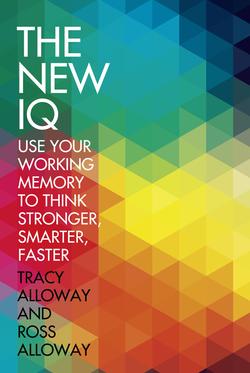Читать книгу The New IQ: Use Your Working Memory to Think Stronger, Smarter, Faster - Tracy Alloway - Страница 65
When the Feel-Good Neurotransmitter Doesn’t Feel Good
ОглавлениеAt the other end of the eating disorder spectrum are people with anorexia nervosa. Anna Patterson, a young woman who blogs about anorexia, was convinced that despite weighing eighty-nine pounds, she still needed to get rid of her “fat” stomach, and although she refused to eat, she couldn’t stop fixating on food.
While it appears that people who eat too much do so at least in part because they’ve become addicted to the dopamine hit they get from an order of french fries or a piece of crispy bacon, new research has shown that people with anorexia don’t respond the same way to dopamine. In 2012, Walter Kaye compared the brain activity of recovering anorexic women with a healthy group of women of the same age and used a PET scanner to determine the effect of dopamine in their brains. He gave both groups of women a single oral dose of the drug amphetamine, which resulted in a big dopamine release.
For most people, the dopamine hit equals pleasure, and as expected, the healthy women experienced feelings of pleasure and euphoria. When Kaye looked at the scans of the healthy women, he saw activation in an area containing the nucleus accumbens, which is filled with dopamine receptors.
Conversely, the brain scans of the recovering anorexics revealed activation in the dorsal caudate, a part of the brain that worries about consequences. In other words, for anorexic individuals, pleasure automatically brings feelings of guilt and worry. Sure enough, when the anorexic women were asked to complete a questionnaire on anxiety, they showed very high levels, lasting over three hours after having received the dopamine hit. For them, their out-of-control behavior was not about pursuing pleasure but rather a desire to avoid the feelings of guilt and anxiety that accompany the dopamine release that comes with eating.
Being “addicted to starvation,” as biologist Valerie Campan calls it, or simply being hooked on self-control is also linked to working memory problems. It seems that too little pleasure can become just as addictive as too much, and working memory suffers in both extremes. In 2006, Australian psychologist Eva Kemps recruited a group of anorexic women and healthy women, and gave them a series of tests as well as a questionnaire about food. She found that the anorexic women reported having more intrusive thoughts about food, weight, and body shape. And while the anorexics and healthy women had similar IQ scores, she argued that the anorexics suffered from a diminished working memory.
In 2009, Arne Zastrow and colleagues at the University of Heidelberg took this further to look at brain scans of women with anorexia. They recruited a group of fifteen anorexic women and fifteen healthy women and asked them to perform a task that involved processing and monitoring information while they were in a brain scanner. The task was to keep a target shape in mind, like a circle or triangle, and press a button to identify this shape from other shapes. Another component of the task was that the target shape would change so the women had to mentally discard the previous shape and update their working memory with the new target. Clinicians commonly use this cognitive task to measure how quickly people can adapt when the rules of the game change.
As in the Kemp study, the anorexic women made more errors than their healthy counterparts, indicating cognitive inflexibility: they find it difficult to disengage from one idea and move to another, which may explain why they display rigidity in behavior. As you recall, a strong working memory helps you shift your focus, suggesting that working memory is impaired in people with anorexia. It is likely part of the reason that it is so hard for people with this disorder to shift from the notion that food is “bad” and to start thinking of it as something enjoyable that promotes good health.
The brain scans in Zastrow’s study offered some insight into why this happens. The scans showed that a number of brain areas involved with motivation were underactive in the anorexic women. The healthy women also showed greater activation in their PFC, demonstrating that they were eliciting their working memory to solve the task. But the anorexic women did not show any activation in the PFC, suggesting that their working memory was on cruise control.
The disadvantages of a poor working memory are clear: when our Conductor falters we realize just how vital it is for our financial, psychological, and physical well-being. Having a poor working memory is linked to a greater risk for unhealthy habits and behaviors that can leave you bankrupt, addicted, obese, or all of these. And to exacerbate the problem, out-of-control behaviors may also drain your working memory or even recruit it to work against your best interests.
